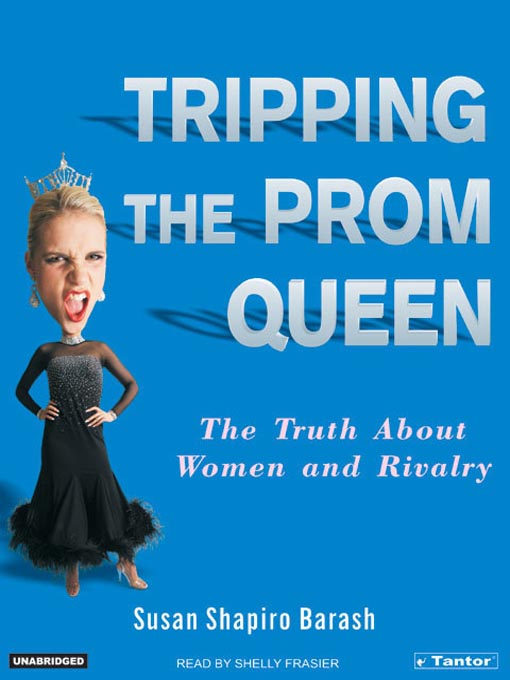
Tripping the Prom Queen
The Truth About Women and Rivalry
فرمت کتاب
audiobook
تاریخ انتشار
2006
نویسنده
Shelly Frasierناشر
Tantor Media, Inc.شابک
9781400172009
کتاب های مرتبط
- اطلاعات
- نقد و بررسی
- دیدگاه کاربران
نقد و بررسی

Women have come a long way in their careers and fields of study, even while juggling work and home responsibilities. So why is it this progress falls short in their relationships with each other? Susan Shapiro Barash interviewed women from all walks of life to discover that their interrelationships are deficient on many levels. Frasier delivers a clear and provocative message that spans relationships between mothers and daughters, sisters, female friends, and co-workers to reveal undercurrents of jealously, deceit, antagonism, and even cruelty. She does, however, deliver much-needed tips for women to use to overcome these tendencies and improve their female relationships. B.J.P. (c) AudioFile 2006, Portland, Maine

December 12, 2005
The recent rash of books and movies about mean girls may seem to indicate a new phenomenon, but Longfellow observed about a certain little girl almost 200 years ago, "when she was good, she was very good indeed/but when she was bad, she was horrid." The 500 women gender studies scholar Barash interviewed for this exhaustively researched book on female competition confirms that women can indeed be mean. Barash outlines why women compete with each other differently than men do with other men and why women often want to sabotage powerful female rivals. Male competition is goal-oriented and limited, Barash says, while women compete over appearance, children, the workplace and relationships. Why? According to Barash, for women, competition is about identity and relationships, and they have a harder time setting boundaries to competition. Barash devotes chapters to specific areas of competition, from looks to career, and then presents real-life examples of situations in which resentment and jealousy can be used to improve one's life without destroying anyone else's. Overall, this study provides a helpful starting place for any woman wondering if it's possible to get what she wants without hurting or being hurt.

September 4, 2006
Frasier is one of the most talented readers of nonfiction audio books (it wasn't a simple matter to make a book like Mary Roach's Stiff both edifying and wry, but Frasier pulled it off wonderfully). Frasier delivers the text at a brisk clip, just quick enough to hold the audience's interest through Barash's repetitive text, but clearly enough to enunciate every word. Moreover, Frasier individualizes the voices of research respondents, 500 heterosexual women interviewed about competitive relationships with other women, putting a human face on Barash's conclusions. Barash has a gift for innuendo: the respondents come across as reluctant, shy, angry, bitter or matter-of-fact. Although these women appear only briefly, Frasier manages to convey more than the printed text might. It's an easier task to read a brilliant book than one like Barash, which lags at times. Kudos to Frasier's fine job with a book that is an important addition to women's and cultural studies but lacks narrative sparkle. Simultaneous release with the St. Martin's hardcover (Reviews, Dec. 12, 2005).
Copyright 2006 Library Journal, LLC Used with permission.

























دیدگاه کاربران